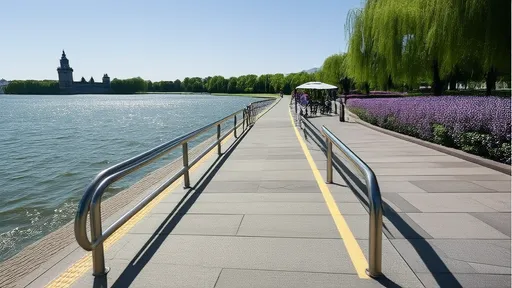For Muslim travelers and residents in Kyoto, finding halal-certified restaurants can sometimes feel like searching for hidden treasures. The ancient capital of Japan, known for its Buddhist temples and Shinto shrines, might not immediately come to mind as a hub for halal dining. Yet beneath its traditional surface lies a growing network of eateries catering to Islamic dietary requirements, offering everything from authentic Japanese cuisine to international flavors prepared in accordance with halal principles.
The concept of halal certification in Kyoto has gained significant traction over the past decade, driven by increasing numbers of Muslim visitors from Southeast Asia and the Middle East. What began as a handful of establishments near major tourist sites has blossomed into a diverse culinary landscape spanning multiple neighborhoods. These restaurants don't merely serve food that happens to be pork-free; they undergo rigorous certification processes to ensure compliance with Islamic dietary laws, from ingredient sourcing to food preparation methods.
Navigating Kyoto's halal dining scene reveals fascinating adaptations of local specialties. Several restaurants now offer halal versions of kaiseki ryori, the elaborate multi-course meal that represents the pinnacle of Japanese haute cuisine. Chefs have creatively substituted traditional ingredients with halal alternatives without compromising the delicate flavors that make Kyoto cuisine unique. The result is an opportunity for Muslim diners to experience authentic Japanese gastronomy they might otherwise have missed.
Beyond traditional Japanese fare, Kyoto's halal-certified establishments reflect the city's cosmopolitan character. Indonesian restaurants serving aromatic rendang curry compete with Turkish kebab houses and Pakistani biryani specialists for attention. This diversity speaks to Kyoto's evolving identity as an international city while maintaining its deep-rooted cultural traditions. Many of these eateries cluster around the Kawaramachi and Karasuma districts, creating convenient halal dining corridors for visitors exploring the city center.
The certification process for Kyoto's halal restaurants involves more than just eliminating pork and alcohol. Reputable certifying bodies conduct thorough inspections of kitchen facilities, verify supply chains for all ingredients, and train staff in halal food handling procedures. Some establishments go further by providing prayer spaces and qibla direction markers, creating a welcoming environment for Muslim patrons. This attention to detail has made Kyoto's halal dining options particularly trusted within the Muslim community.
Seasonal variations play a significant role in Kyoto's halal culinary offerings, mirroring the city's strong emphasis on shun (seasonal eating). During autumn, halal-certified restaurants might feature dishes incorporating freshly harvested sweet potatoes or chestnuts, while spring brings sakura-inspired creations using edible cherry blossoms. This connection to the seasons ensures that Muslim visitors can participate in Kyoto's rich culinary calendar while adhering to their dietary restrictions.
Language barriers, once a significant hurdle for Muslim tourists seeking halal meals in Kyoto, have diminished thanks to multilingual menus and staff trained in basic Islamic dietary terminology. Many halal-certified restaurants now display their certification prominently in Arabic, Malay, and English, making them easily identifiable. Some even provide explanations of Japanese dining etiquette tailored to international Muslim visitors, bridging cultural gaps through food.
The rise of halal-certified restaurants has subtly influenced Kyoto's broader food culture. Local suppliers have developed halal versions of key Japanese ingredients like miso paste and dashi stock, which in turn has expanded dining options beyond specifically Muslim-oriented establishments. Several mainstream restaurants now offer halal menu sections, and convenience stores in tourist areas stock halal-certified bento boxes—developments that would have been unthinkable a decade ago.
For Muslim travelers planning extended stays, Kyoto's halal-certified grocery stores and markets provide opportunities for self-catering. These shops stock everything from halal-certified Japanese rice and noodles to imported Middle Eastern spices and Malaysian instant noodles. The presence of such specialty retailers indicates the establishment of a resident Muslim community alongside the transient tourist population, further cementing halal dining as a permanent feature of Kyoto's food landscape.
Looking ahead, Kyoto's halal culinary scene shows no signs of slowing its expansion. New establishments continue to open, ranging from modest ramen shops to upscale dining venues. The city has begun incorporating halal information into its official tourism materials, signaling institutional recognition of Muslim travelers as an important demographic. As word spreads about Kyoto's halal dining options through social media and travel forums, the ancient capital is steadily transforming into one of Japan's most Muslim-friendly destinations.
What makes Kyoto's halal dining experience truly special is how it encapsulates the city's spirit of omotenashi (heartfelt hospitality) while respecting Islamic traditions. From the chef who painstakingly develops halal versions of family recipes to the waiter who learns basic Arabic phrases to make guests feel welcome, these personal touches elevate the experience beyond mere dietary compliance. For Muslim visitors, discovering these culinary oases in an unexpected location often becomes one of the most memorable aspects of their Kyoto journey.

By /Jul 25, 2025

By /Jul 25, 2025

By /Jul 25, 2025

By /Jul 25, 2025

By /Jul 25, 2025

By /Jul 25, 2025

By /Jul 25, 2025

By /Jul 25, 2025

By /Jul 25, 2025

By /Jul 25, 2025

By /Jul 25, 2025

By /Jul 25, 2025

By /Jul 25, 2025

By /Jul 25, 2025

By /Jul 25, 2025

By /Jul 25, 2025

By /Jul 25, 2025

By /Jul 25, 2025

By /Jul 25, 2025

By /Jul 25, 2025